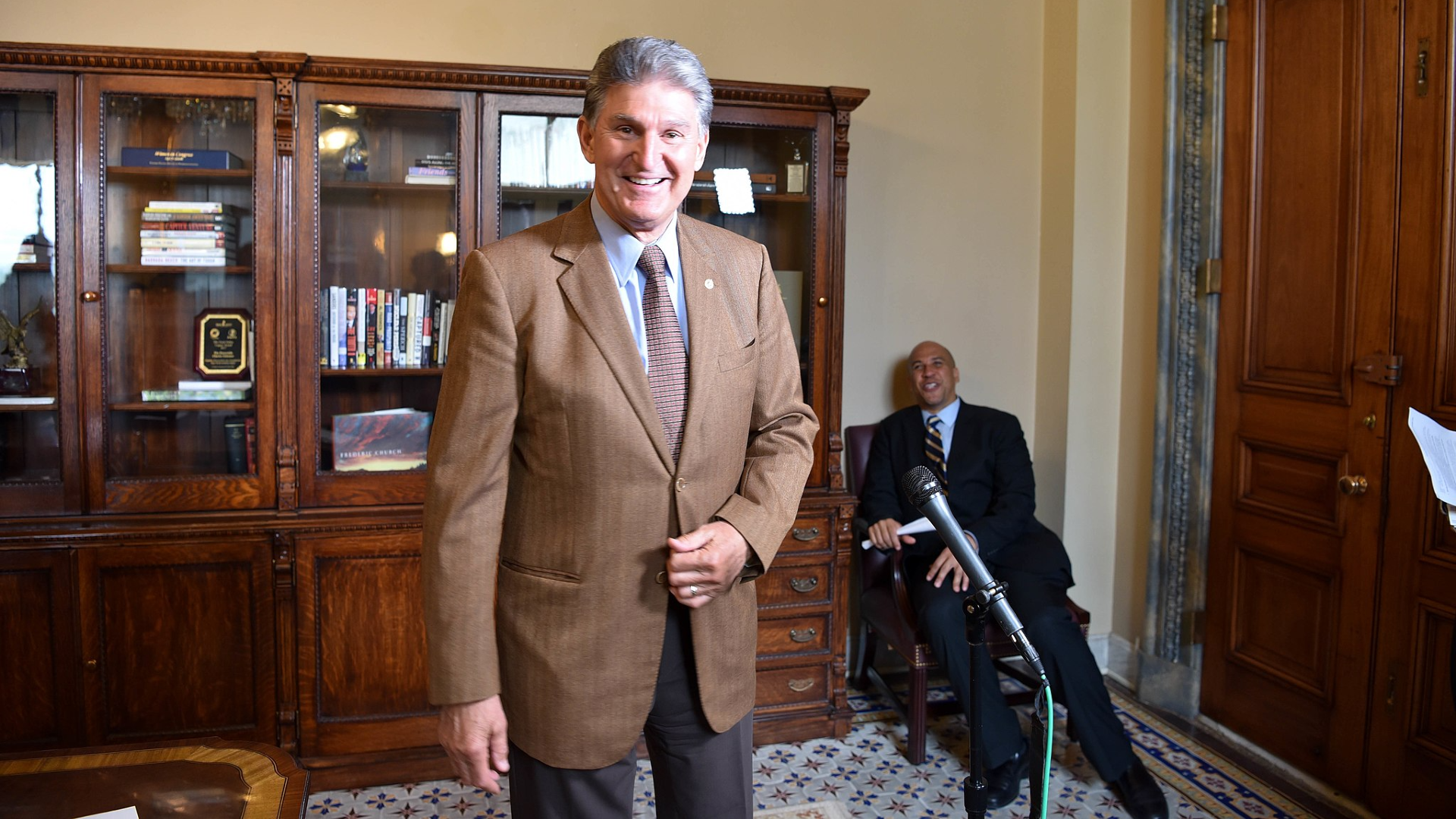Progressive lawmakers and climate justice activists are rejoicing in the defeat of a Biden-backed side-deal after a bill to fast-track the permitting process for energy projects, including fossil fuels, was excluded from the must-pass annual defense spending bill for a second time.
While environmental justice activists have been pushing to kill Sen. Joe Manchin’s (D-WV) permitting bill, which would make it easier for energy companies to overrule community opposition, progressives like House Natural Resources Chair Rep. Raul Grijalva (D-AZ) and Sen. Jeff Merkley (D-OR) have been leading the charge to force Manchin’s bill to be considered as a stand-alone piece of legislation.
In the days and weeks leading up to the release of the National Defense Authorization Act (NDAA), progressives have been vocal in their opposition to attaching the Manchin bill as an amendment.
Monday, as news broke of a last-ditch effort by Speaker Nancy Pelosi (D-CA) and Sen. Maj. Leader Chuck Schumer (D-NY) to include permitting reform as part of the NDAA, progressive House members began declaring on Twitter their “no” votes on advancing the bill. And as TYT reported last week, Rep. Ro Khanna (D-CA) vowed to counter Manchin’s bill by attaching a $15 federal minimum wage requirement to the NDAA.
Shortly before the language in the NDAA was released Tuesday night, the Congressional Progressive Caucus issued a statement opposing the inclusion of Manchin’s bill. The statement says in part, “While many within the CPC are supportive of accelerating and expanding renewable energy transmission, progressives have raised objections to a specific approach under consideration that entrenches new fossil fuel infrastructure, undermines judicial independence, rolls back environmental protection law, and impedes frontline communities’ input or ability to contest polluting infrastructure in their areas, among other concerns.”
Merkley sent a letter co-signed by Sens. Tammy Duckworth (D-IL), Bernie Sanders (I-VT), Elizabeth Warren (D-MA), Edward J. Markey (D-MA), and Cory Booker (D-NJ), to Schumer and Pelosi calling for permitting reform to “go through the regular committee process in both chambers, where constituents and stakeholders may weigh in on the pros and cons, and where the legislation is subject to robust floor debate.”
As TYT reported last month, Grijalva re-sent his September letter, co-signed by 76 other Democratic Caucus members, to House leadership urging them ”to exclude harmful permitting provisions from must-pass legislation this year.”
And Sen. Bernie Sanders (I-VT) told TYT that Manchin’s bill is an “environmental disaster” and that he’d do everything he can to keep it from passing.
In September, Manchin pulled his permitting bill from the must-pass continuing resolution to fund the government at the last minute when it was clear that he lacked sufficient support to get it through.
In a statement, Manchin responded to the development by saying, “Our energy infrastructure is under attack and America’s energy security has never been more threatened. Failing to pass bipartisan energy permitting reform that both Republicans and Democrats have called for will have long-term consequences for our energy independence. The American people will pay the steepest price for Washington once again failing to put common-sense policy ahead of toxic tribal politics. This is why the American people hate politics in Washington.”
If Manchin’s permitting bill were to pass as-is, it would require the president to keep a rolling list of at least 25 high-priority fossil-fuel and renewable-energy projects that would have their permitting processes fast-tracked. It would have severely limited input from Black, Brown, Indigenous, and low-income communities, which have been historically and disproportionately impacted by harmful energy projects. And it would have guaranteed the completion of the Mountain Valley Pipeline, a pet project of Manchin’s that would carry natural gas more than 300 miles from West Virginia to Virginia.
Proponents of Manchin’s bill say permitting reform on energy projects is necessary to combat climate change. But environmental justice activists and progressives have long argued that permitting reform can happen without disproportionately impacting Black, Brown, Indigenous, and low-income communities. They also want to see permit fast-tracking benefit renewables like wind and solar rather than fossil fuels.
Manchin was promised permitting reform in a side-deal with Schumer, to win Manchin’s support for passing the Inflation Reduction Act.
In a statement Dr. Crystal Cavalier-Keck, co-founder of 7 Directions of Service, said that while Tuesday’s news signifies a win, the war is still on against the MVP and Manchin’s “dirty deal.” She said in part, “MVP and many other fossil fuel projects have destroyed fence-line communities and we now need to stand together in solidarity more than ever.”
TYT Washington Correspondent Candice Cole was previously a correspondent and senior White House producer for the Black News Channel and has worked at a number of local news outlets. You can find her on Twitter @CandiceColeNews.

